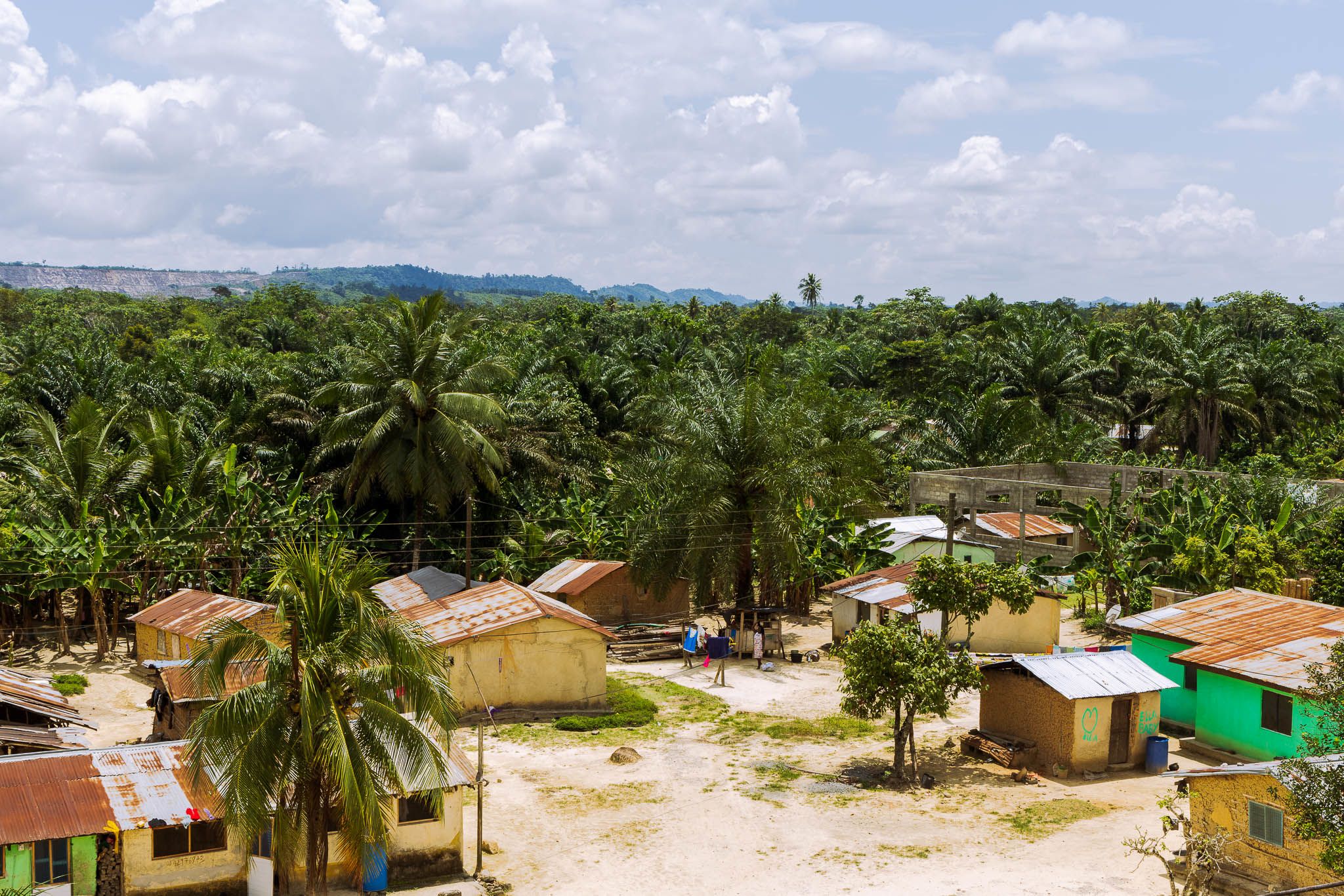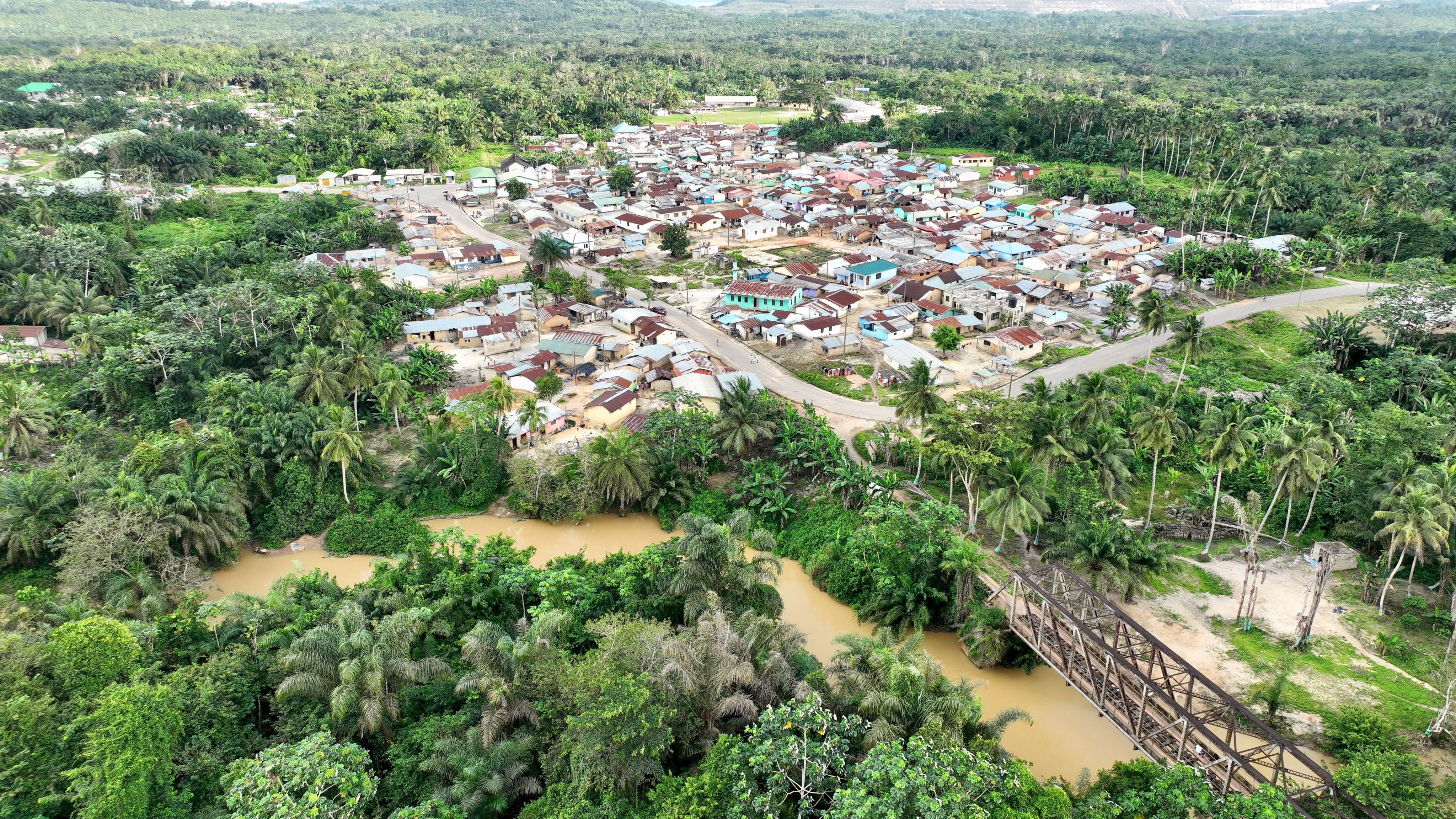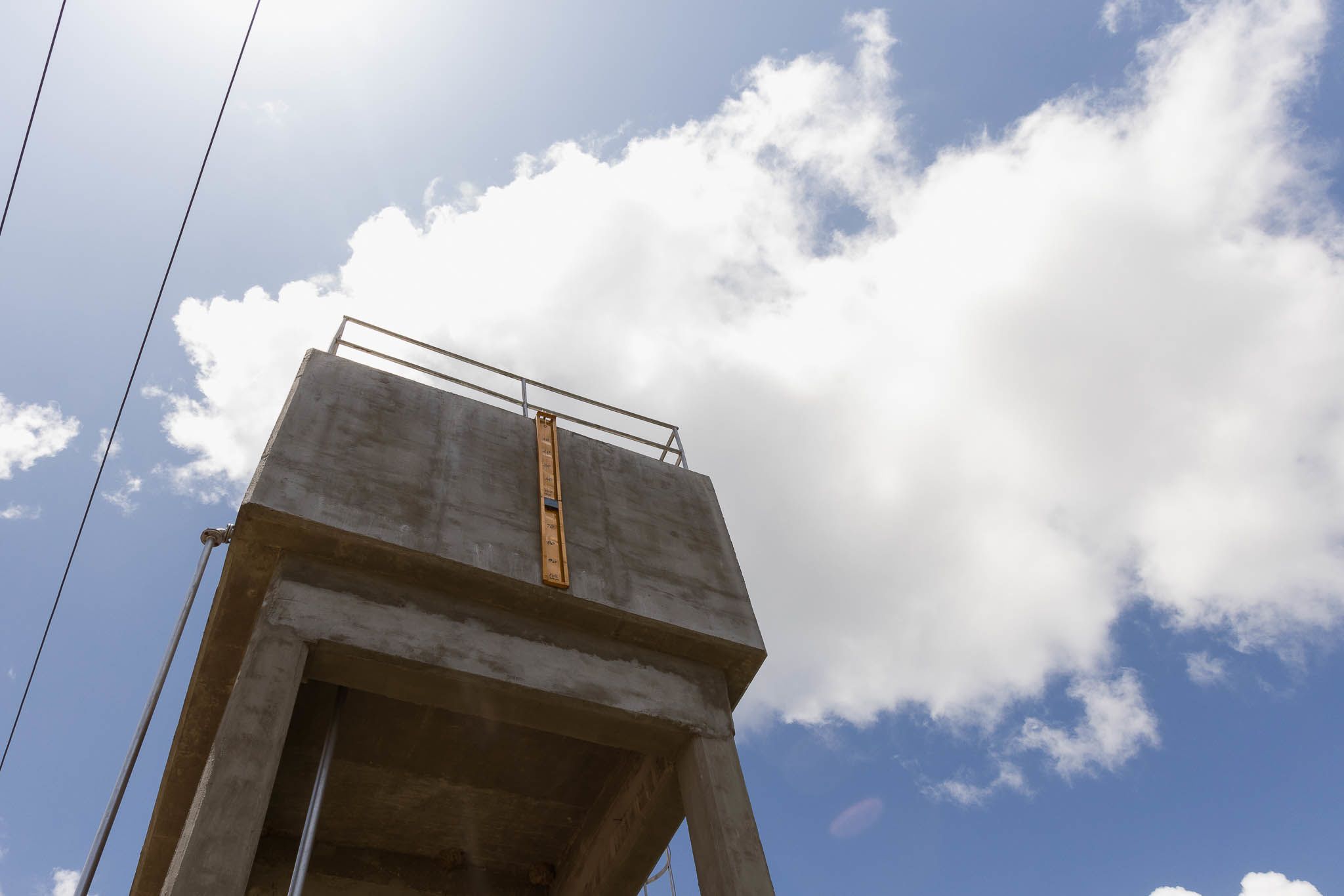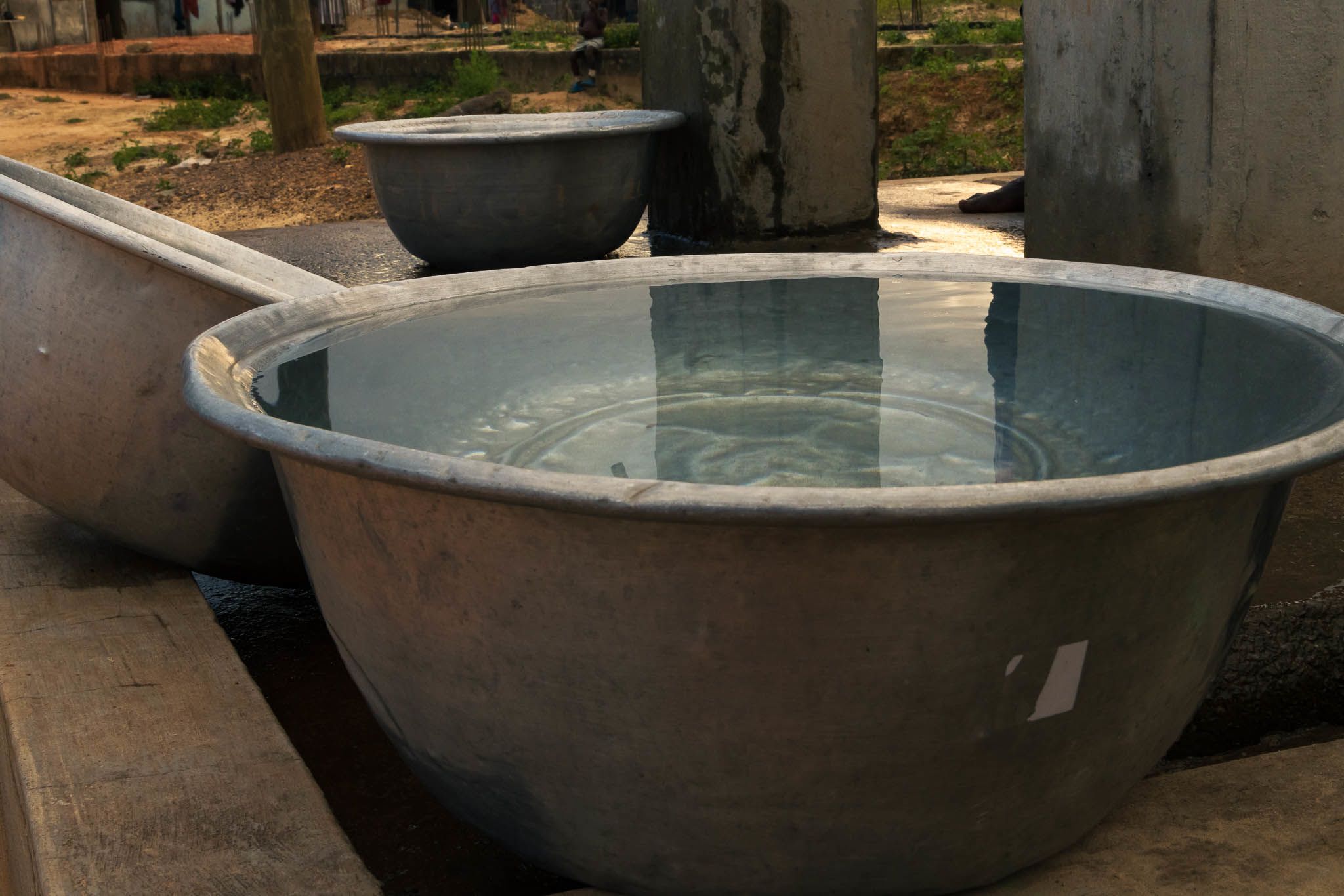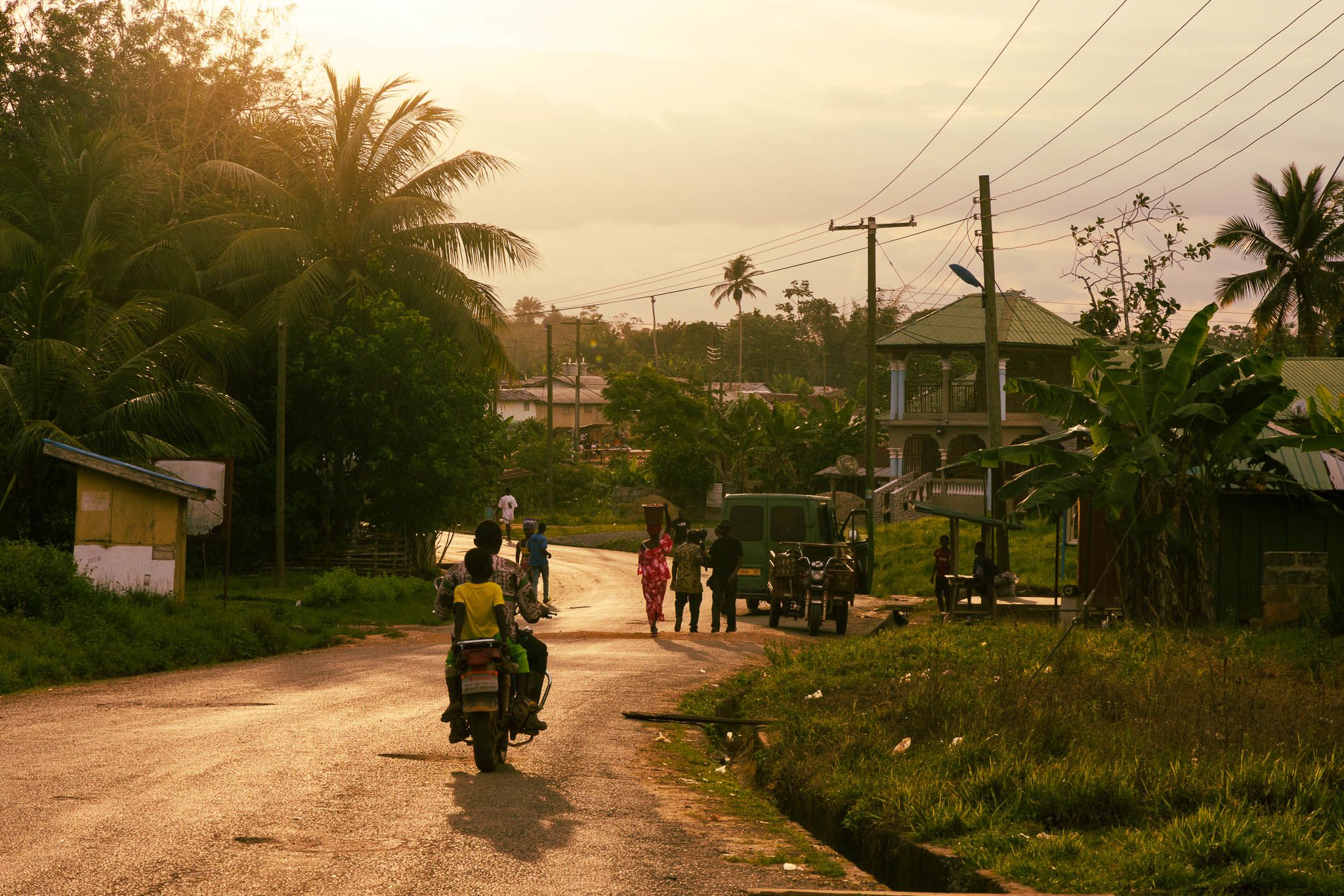Nsuo Helps Our Life
nsuo (noun) meaning water in Twi
The Story of Huniso's Journey to Clean Water
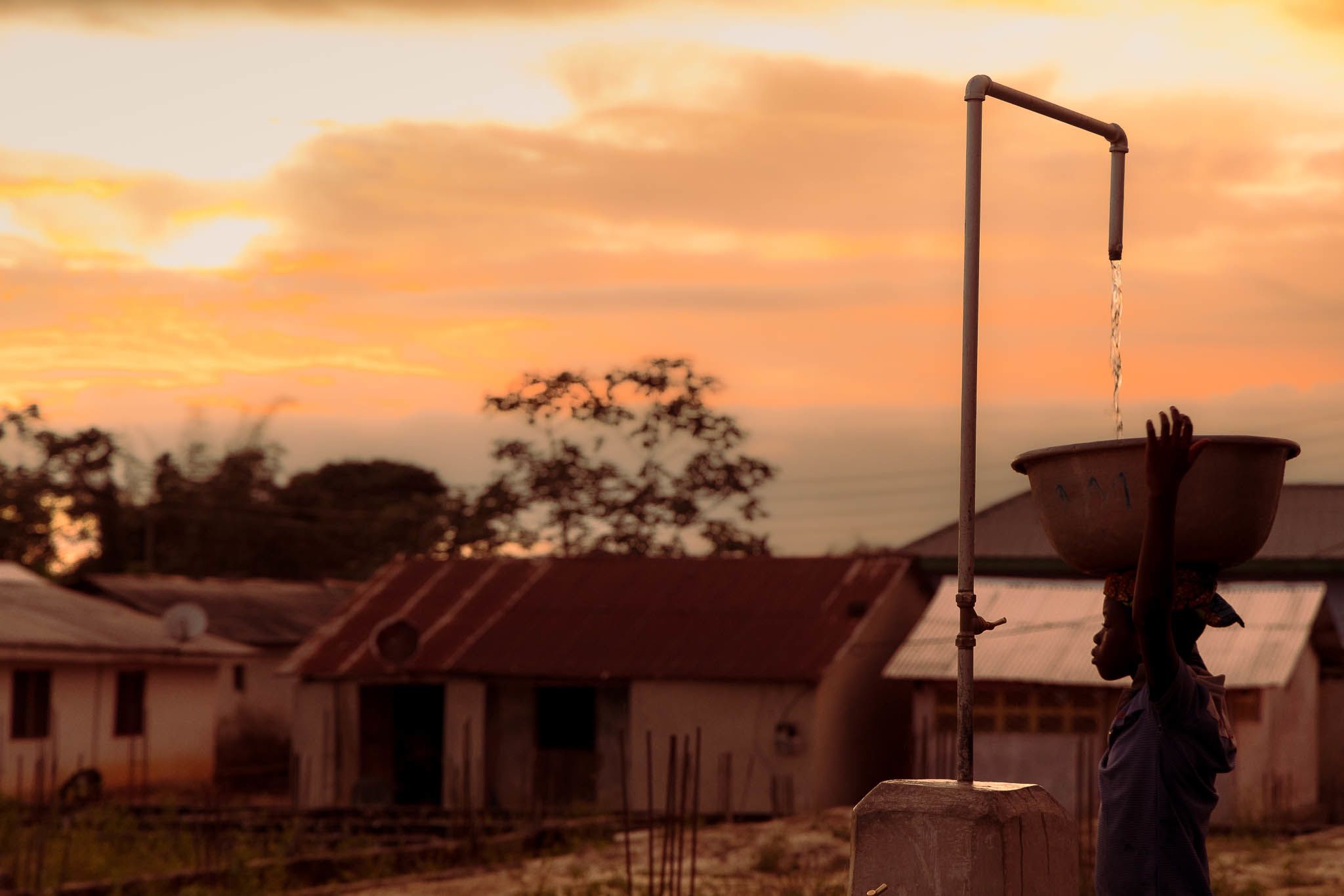
Welcome to Huniso
The road to Huniso, Ghana, is isolated. A sharp left-hand turn leads down a rocky path dotted with shrub brush and very few people passing by. Then, 30 minutes later, the brush suddenly gives way to darting motorbikes and the hurried activity of townspeople busy with their morning tasks.
The town’s earth-toned buildings, covered under zinc roofing, lie in the middle of a rich green forest flanked by a chocolate-colored river. This river was Huniso’s primary source of water for generations. Thirty years ago, an incident at the Tarkwa mine caused cyanide to spill into the river, contaminating Huniso’s primary water source.


Lack of access to clean water is not unique to the residents of Huniso. At least 2 billion people globally use contaminated water sources daily. Drinking contaminated water can transmit life-threatening diseases such as diarrhea, cholera, dysentery, typhoid and polio. Moreover, bathing in water contaminated by chemicals or parasites can lead to skin infections, and washing fruits, vegetables and dirty dishes with it can spread harmful bacteria and viruses.
Source: WHO International
The most important thing in the world is water. If you don’t have water, you cannot do anything. You drink water to gain strength and life. We use it to cook, to wash and bathe. We need clean water.
The Huniso community is familiar with battling waterborne diseases. In the wake of the cyanide spill, tasks became more tedious with the daily commute to fetch water and the worry over if it would make them sick. Gold Fields Ghana, a mining company, dug wells for the community to no longer have to rely on the Huni River, but the wells only worked for a short time. Drought, improper waste disposal practices and a growing population led to unreliable access to clean water.
“In years past, the inhabitants of the Huniso community were not many, so we depended on dug-out wells,” said Alex Kwaku Osei, Opinion Leader and Secretary to the Chief. “We realized that well water could not support us, so we informed Gold Fields and they pledged to support us again.”
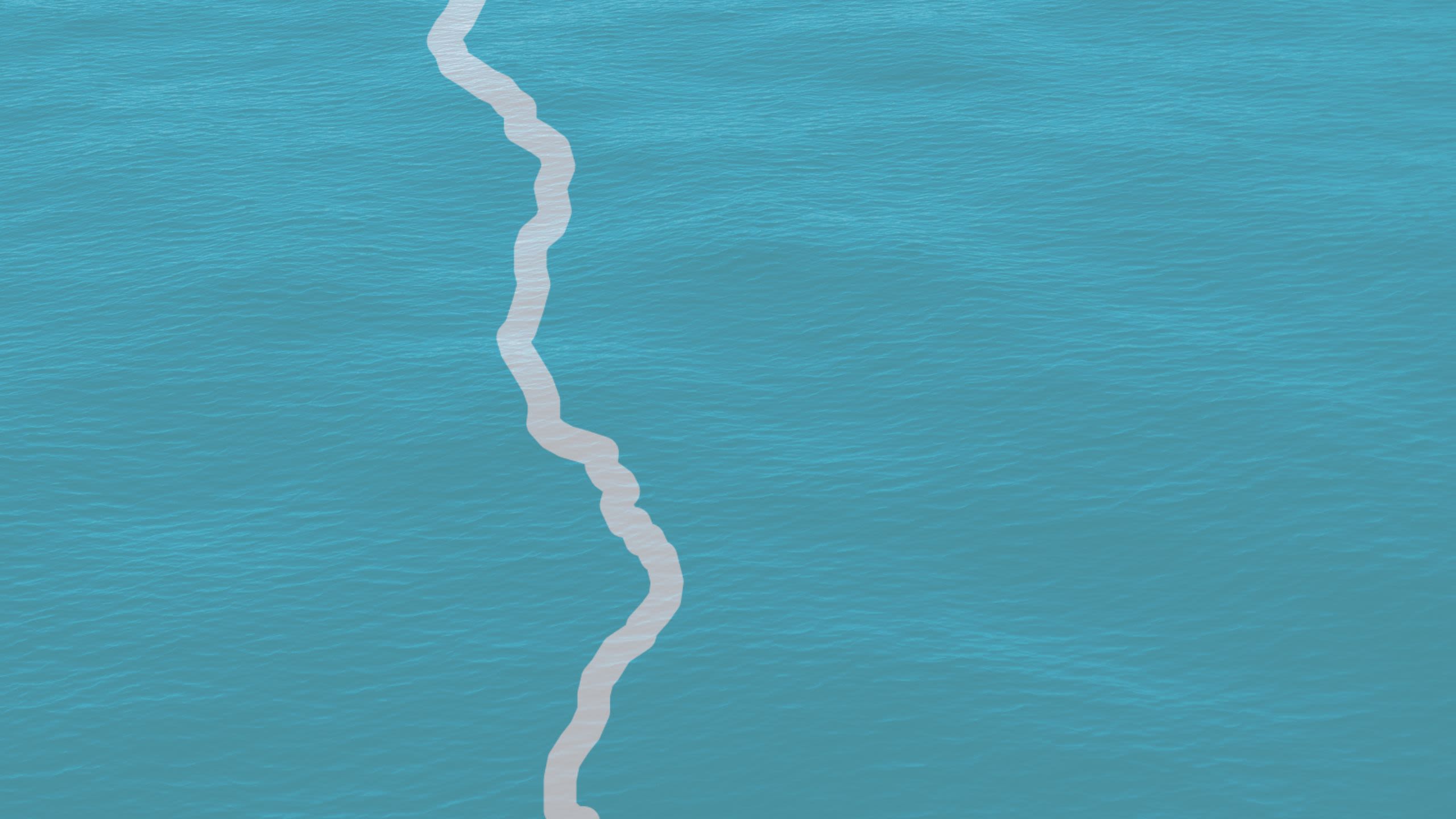


“We used to get our water from the Huni River, and it gave us a lot of diseases and sicknesses.”

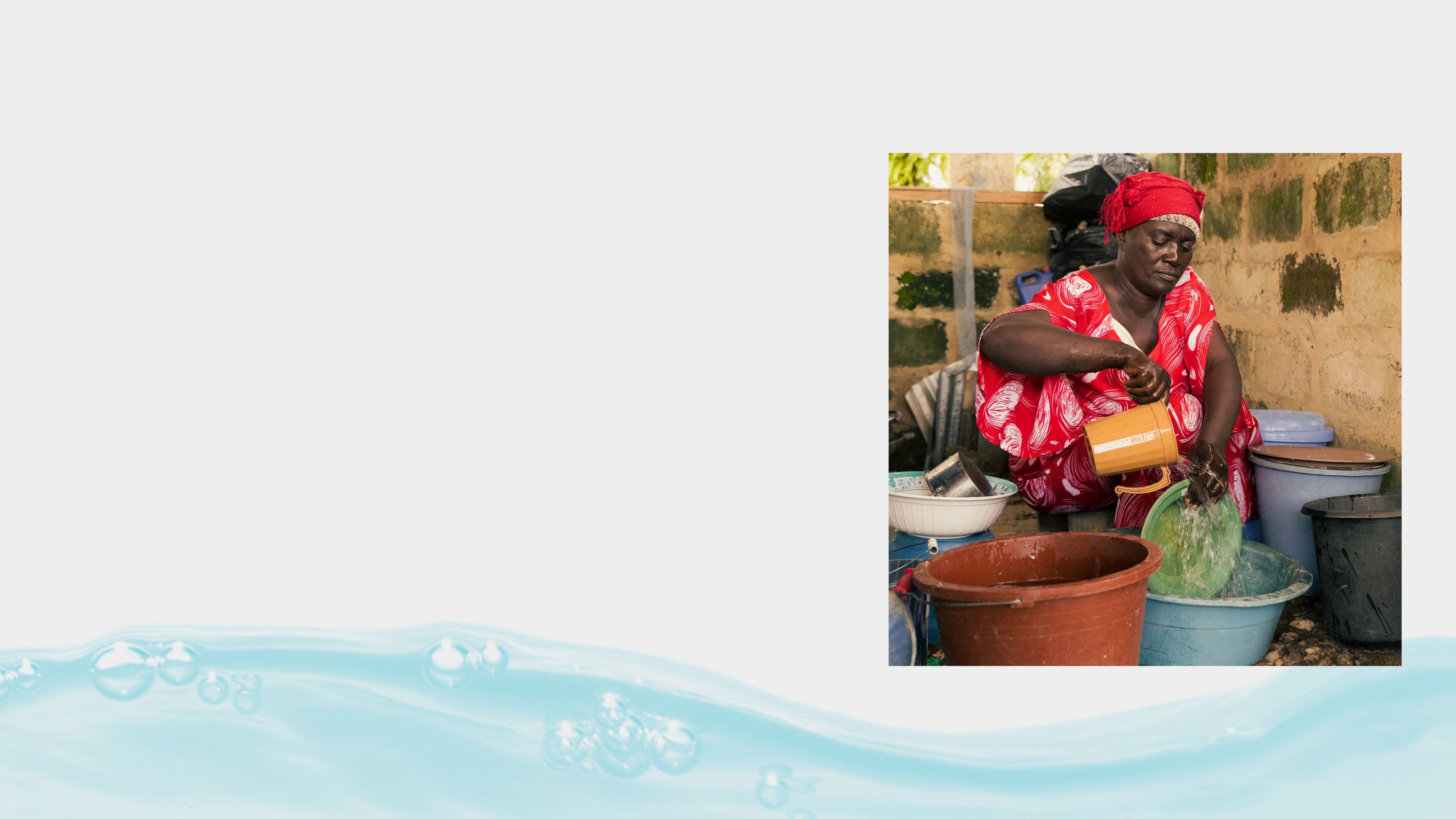
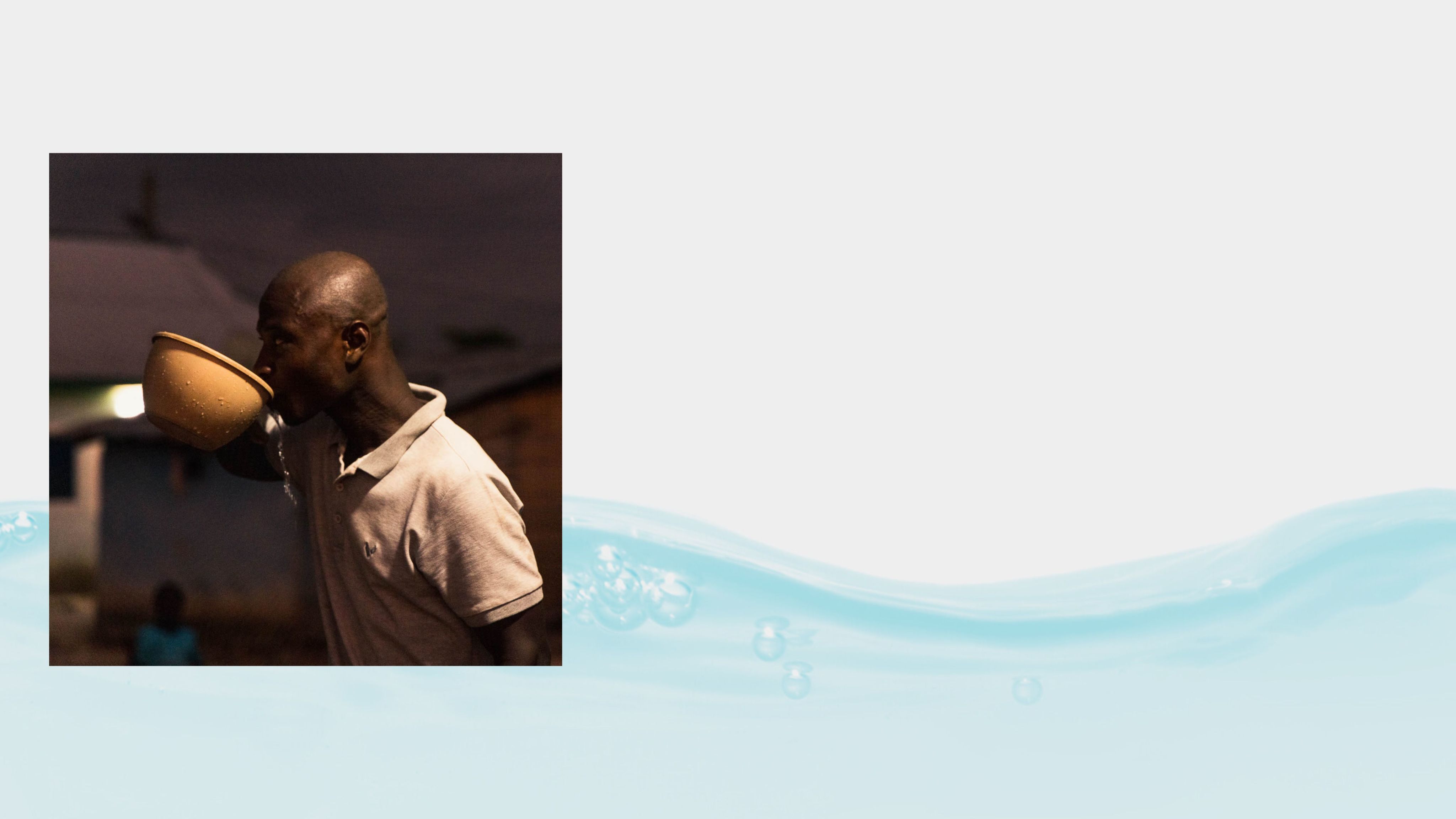
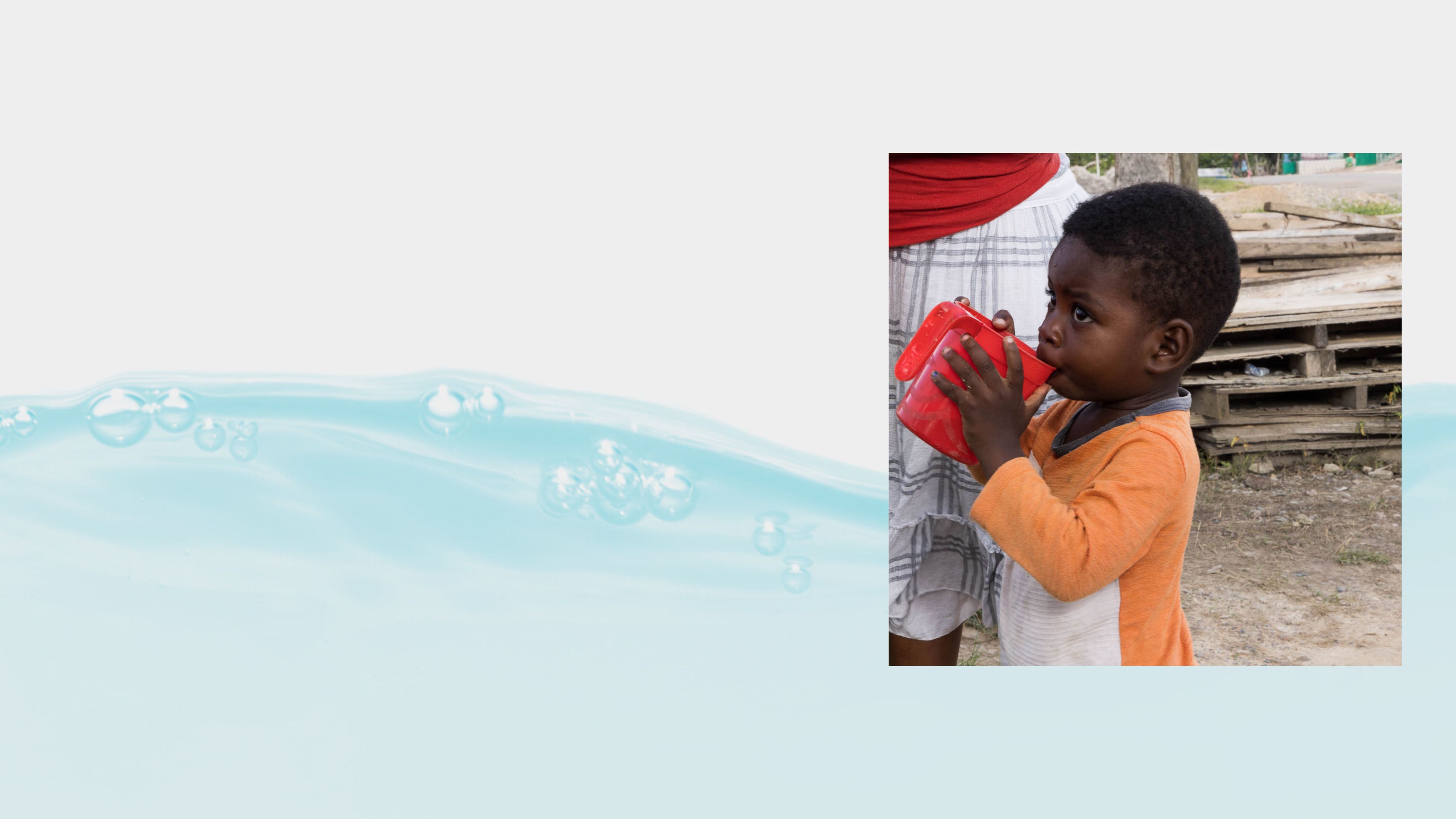
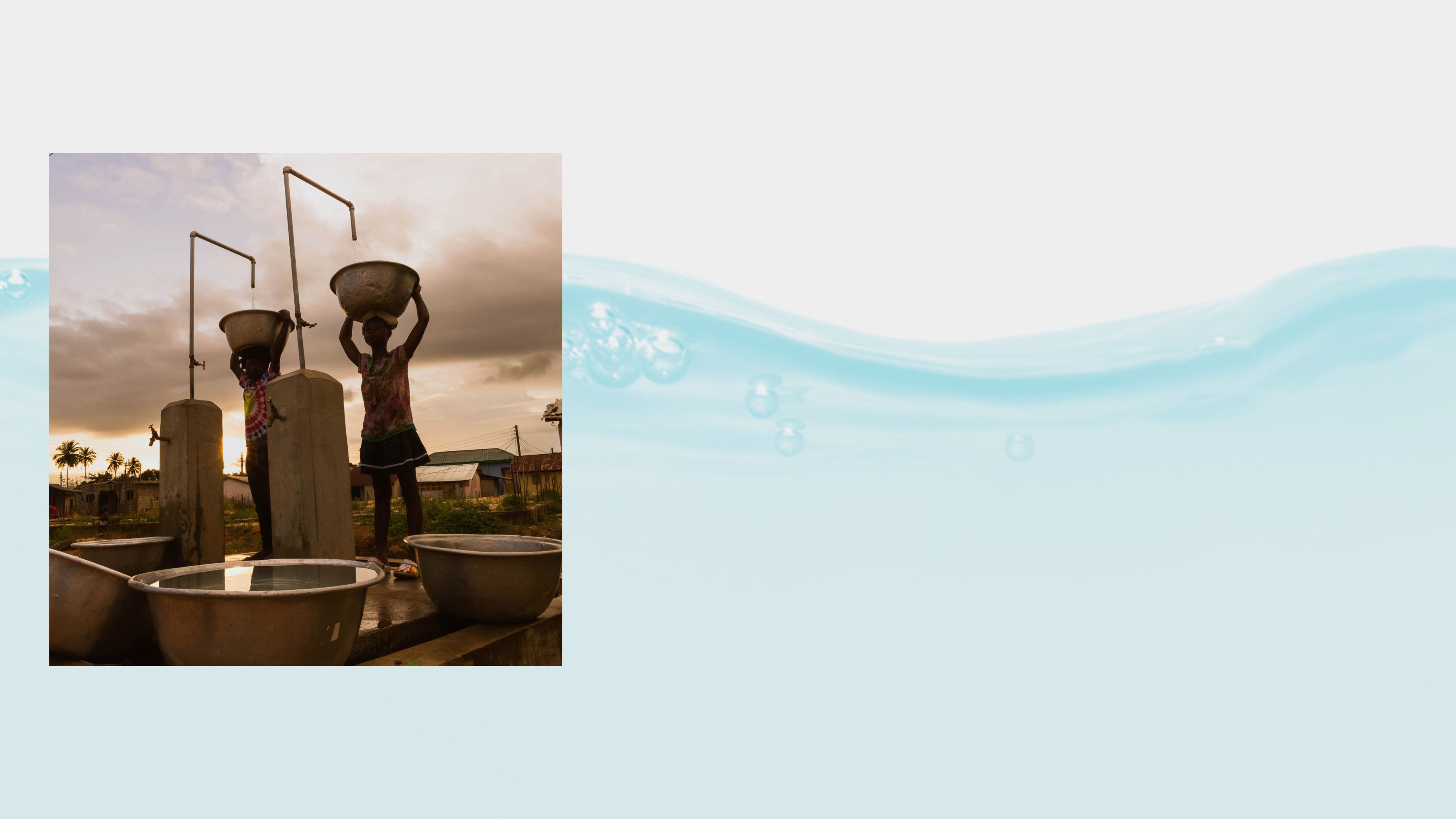
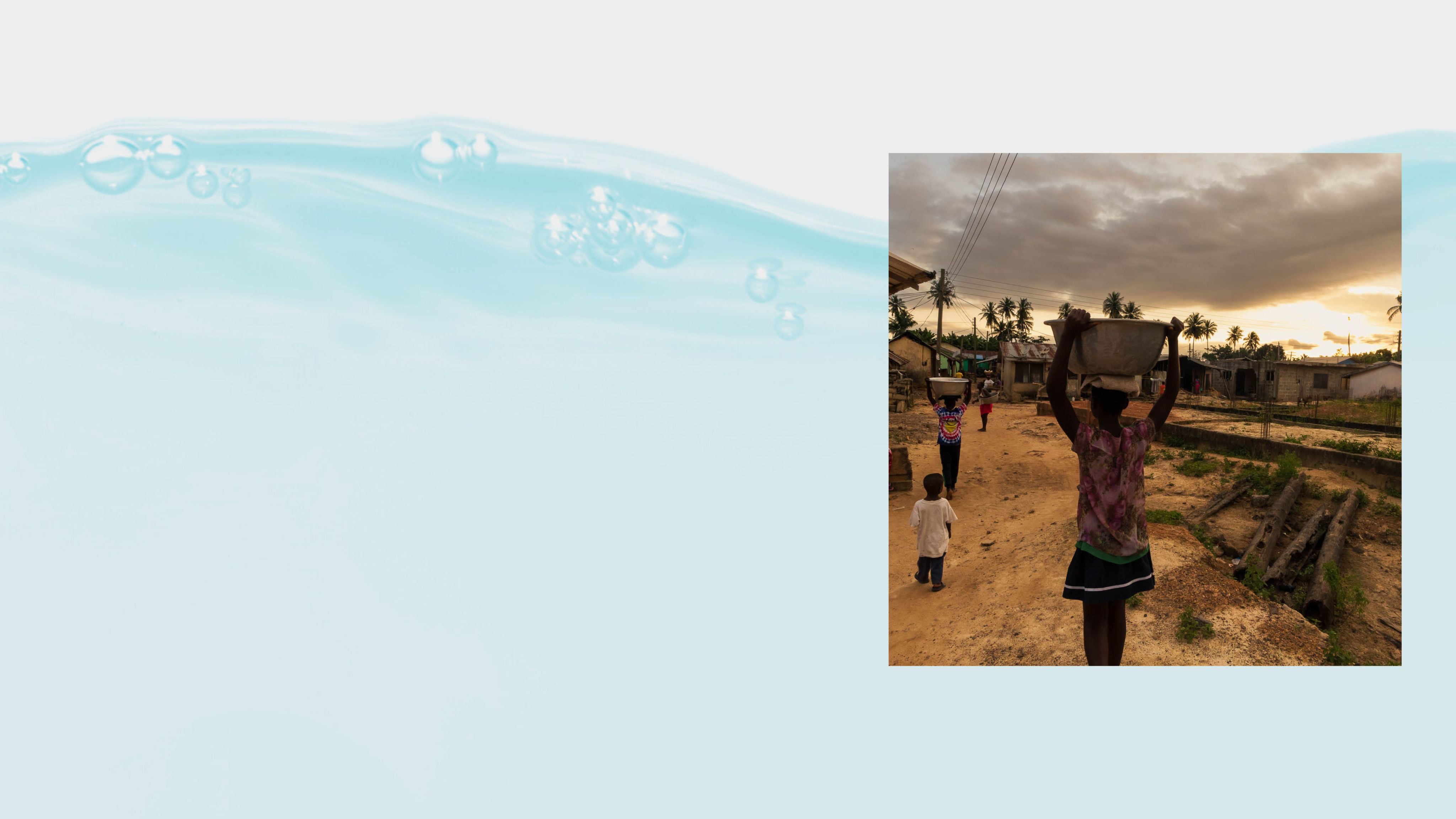
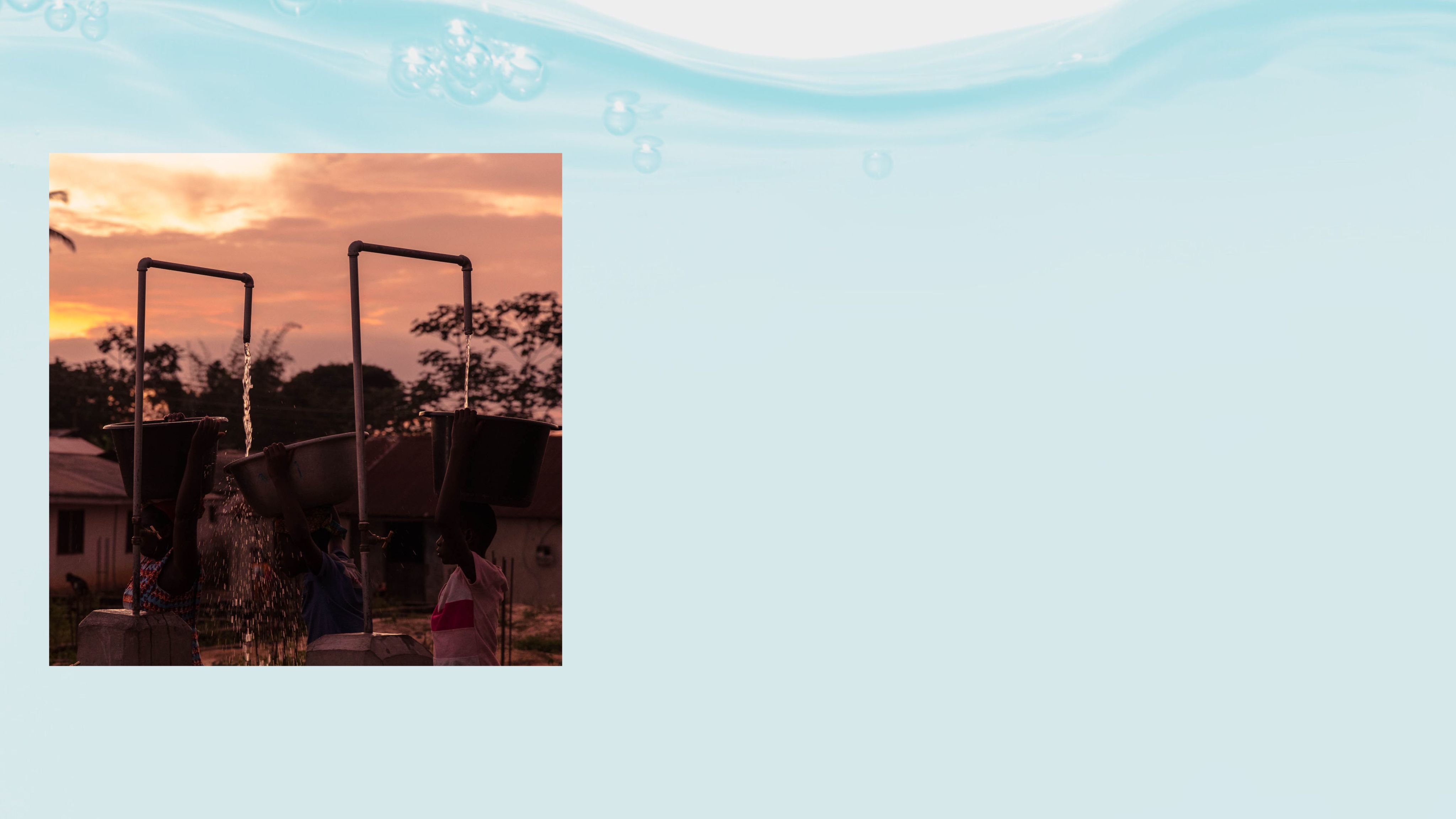
Cecilia Quason sits next to a pile of dishes used by her family at mealtime. She picks up a plastic, green plate and pours water over it. Quason no longer worries about the dangers that may be lurking on the dishes at their next meal because she got water from the standpipe, a three-minute walk from her home.
Joseph Kwarteng drinks from a ladle, demonstrating the safety of the water taken from the standpipes for internal consumption. Huniso residents no longer have to search for alternative drinking water sources.
A young mother pours water into her toddler’s drinking cup. He is thirsty after trailing behind her to fetch water for their household. He sips it vigorously.
For households that do not have internal water systems, fetching water from the river or a reservoir is a typical chore for young Ghanaian children. A boy and girl stand at one of the standpipe stations, balancing silver water pans on their heads using a kahyire — a donut-sized piece of cloth — to collect evening water for their homes.
After filling the water pans to the brim, the children walk steadily back to their homes. They will make multiple trips to the standpipes until they have collected enough water to supply their household needs for the night.
As the sun begins to dim, evening activity picks up and queues extend at the two standpipe stations. Like an assembly line, the next person dips under the water faucet to position their pan under the running water. As one woman leaves the platform with her collection of water, a young boy hurriedly positions himself to avoid wasting the precious resource, droplets cascading around him.
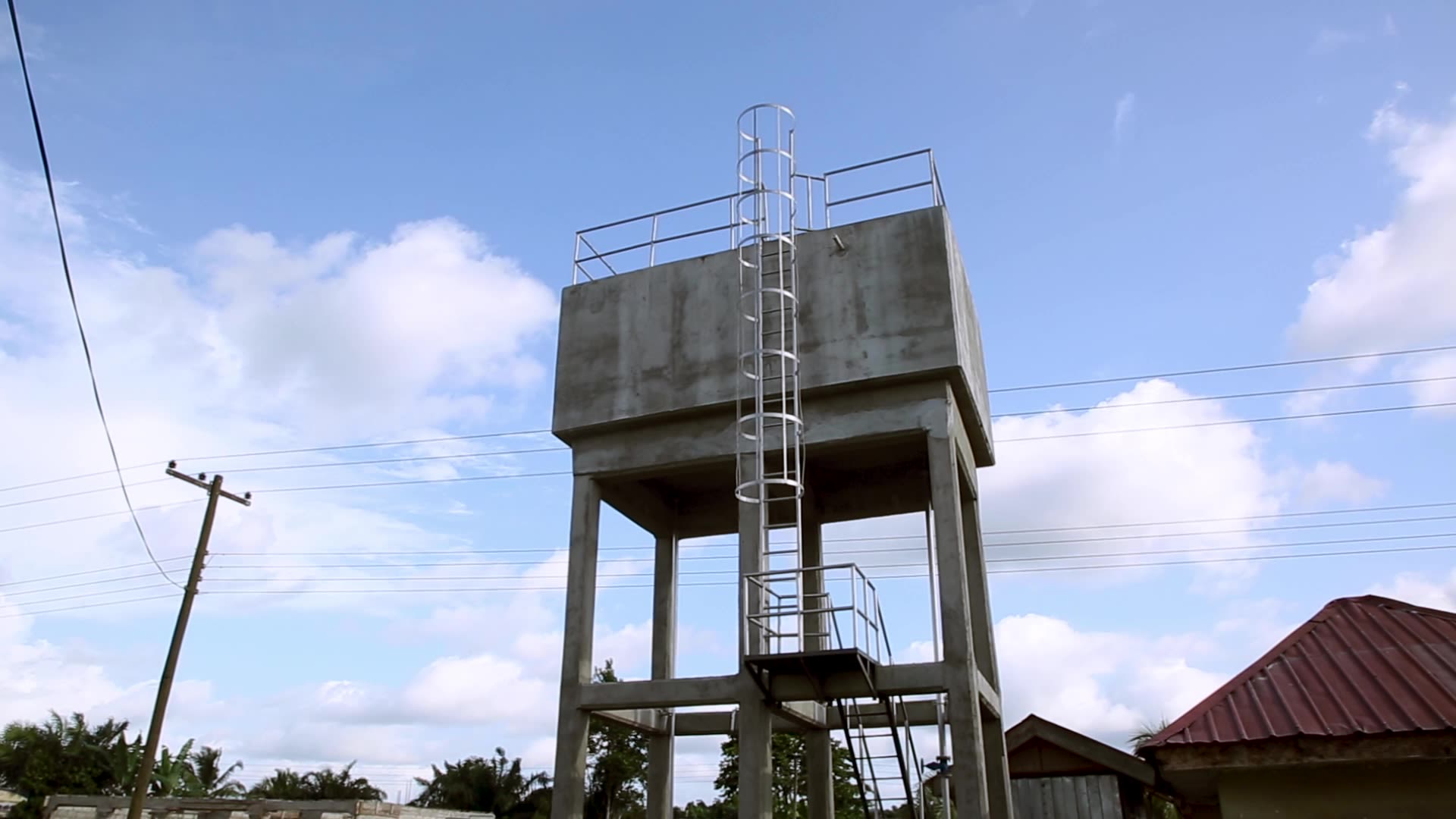
Small-Town Water Systems
Gold Fields Ghana connected with Global Communities to provide a long-term solution to the issue of providing sustainable access to clean water in Huniso. Once engaged, Global Communities worked with local water and sanitation leaders (WATSAN) to install a small-town water system in 2020.
Today, because of this water system, the issue of cholera and skin rashes are no more. Because of the small-town water system, we have not had any problems with water again. It flows very well.
The water system is borehole-based, meaning deep holes are dug into the earth until reaching a layer of groundwater. Then, trenches add into a complex system of pipelines to move the water up into a large concrete reservoir. The reservoir connects to an additional network of pipes that use gravity to push the water through one of two large standpipe stations that sit on a boxy concrete structure where community members turn a spout and have immediate access to free-flowing water.
Standpipe construction schedules are more difficult because of climate change’s impact on the pattern of rain. Increasingly unpredictable weather makes planning and construction schedules harder to predict. Rainfalls affect the level of groundwater, which causes the need to adjust timelines and dig deeper to find reliable water sources. Per Global Communities’ environmental monitoring plan, when clearing an area for borehole construction, trees are replanted nearby to decrease the impact of climate damage.
This water tank holds up to 50,000 liters.
This water tank holds up to 50,000 liters.
When construction of the small-town water system began, Global Communities engaged local carpenters, masons and welders to work alongside installation teams, thus ensuring sustainability. Ultimately, as pipes age and pumps need replacement, the trained WATSAN leaders will be able to make repairs instead of hiring costly external labor.
Global Communities, in partnership with Huniso’s leadership, selected five to nine members to engage in capacity building — from hygiene promotion to maintenance training.
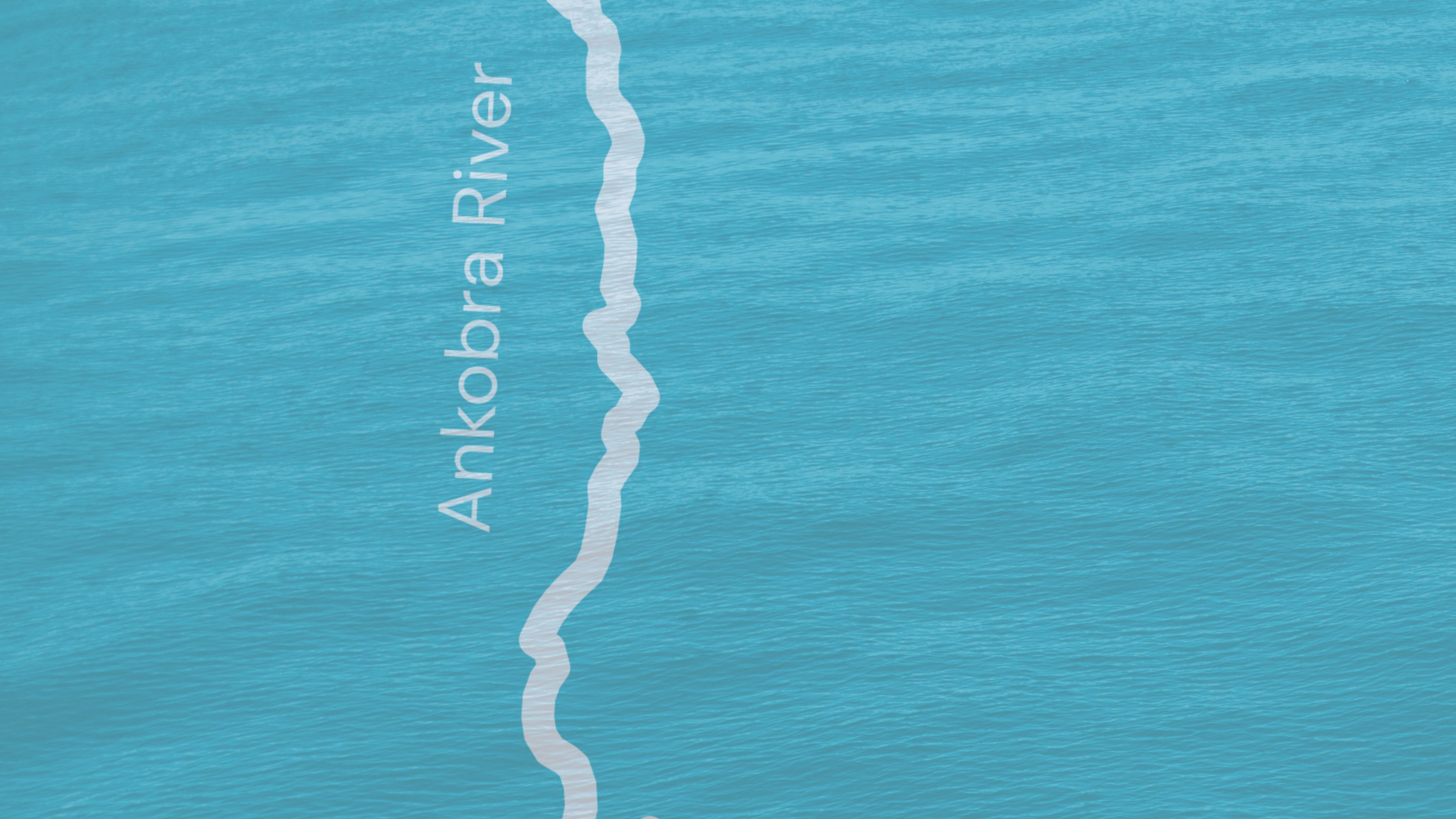


A Localized Network
Localization efforts for the small-town water system went beyond WATSAN leaders being intimately involved in the construction process. Cecilia Acquah is a local water seller. She collects 20 Pesewas ($1.83) for every 24 liters of water community members use. The collected funds are saved in a bank account owned by the community to pay for any materials or repairs needed for the water system’s upkeep, ensuring that clean water will flow for generations to come.
I make accounts to the WATSAN committee members at the end of every month. When the pipe develops a fault, we use some of the monies collected to repair it.
The small-town water system has done more than provide clean water to over 4,000 people; it inspires behavior change. Prior to installation, members of the Huniso community did not pay much attention to where they disposed of waste from their homes. Now, they commit to keeping their water source free from potential contamination.
Global Communities recommends that local government offices include budget line items for monitoring and resources to increase the sustainability of the project's success after program funding ends. The organization then works hand-in-hand with district assemblies and municipality offices to support implementing behavioral change components and monitoring to prove project sustainability.
Beyond engaging with the local government, Global Communities champions natural leaders within the community to lead in the widespread adoption of WASH behaviors and practices.
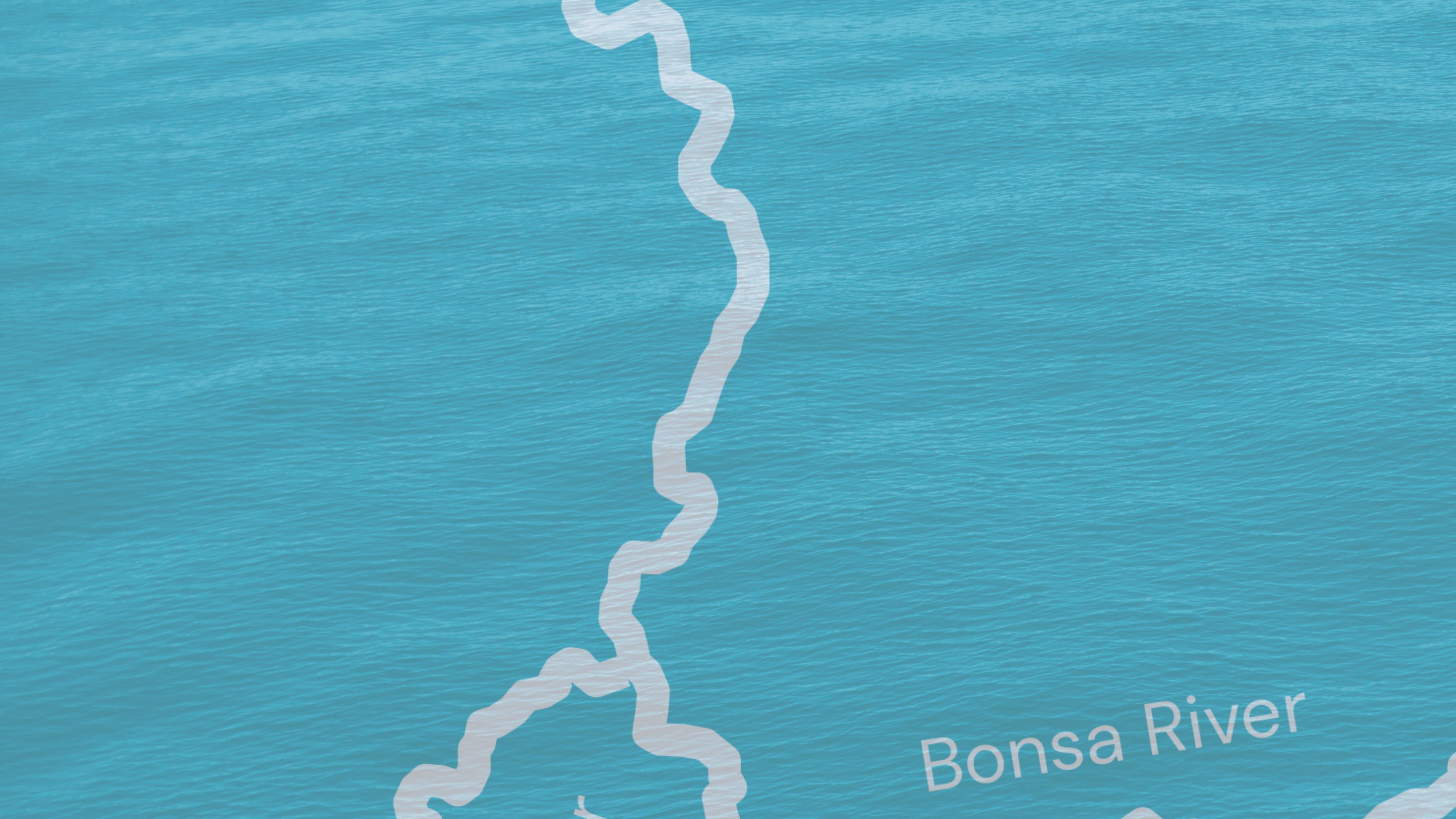


Before we started working with the communities, you will see that as soon as you enter the community, most of the communities outwardly, it doesn't look so clean. ... But after our intervention, you come back to the community... you just see that there's a significant change concerning the environment. People are keeping the environment clean now.

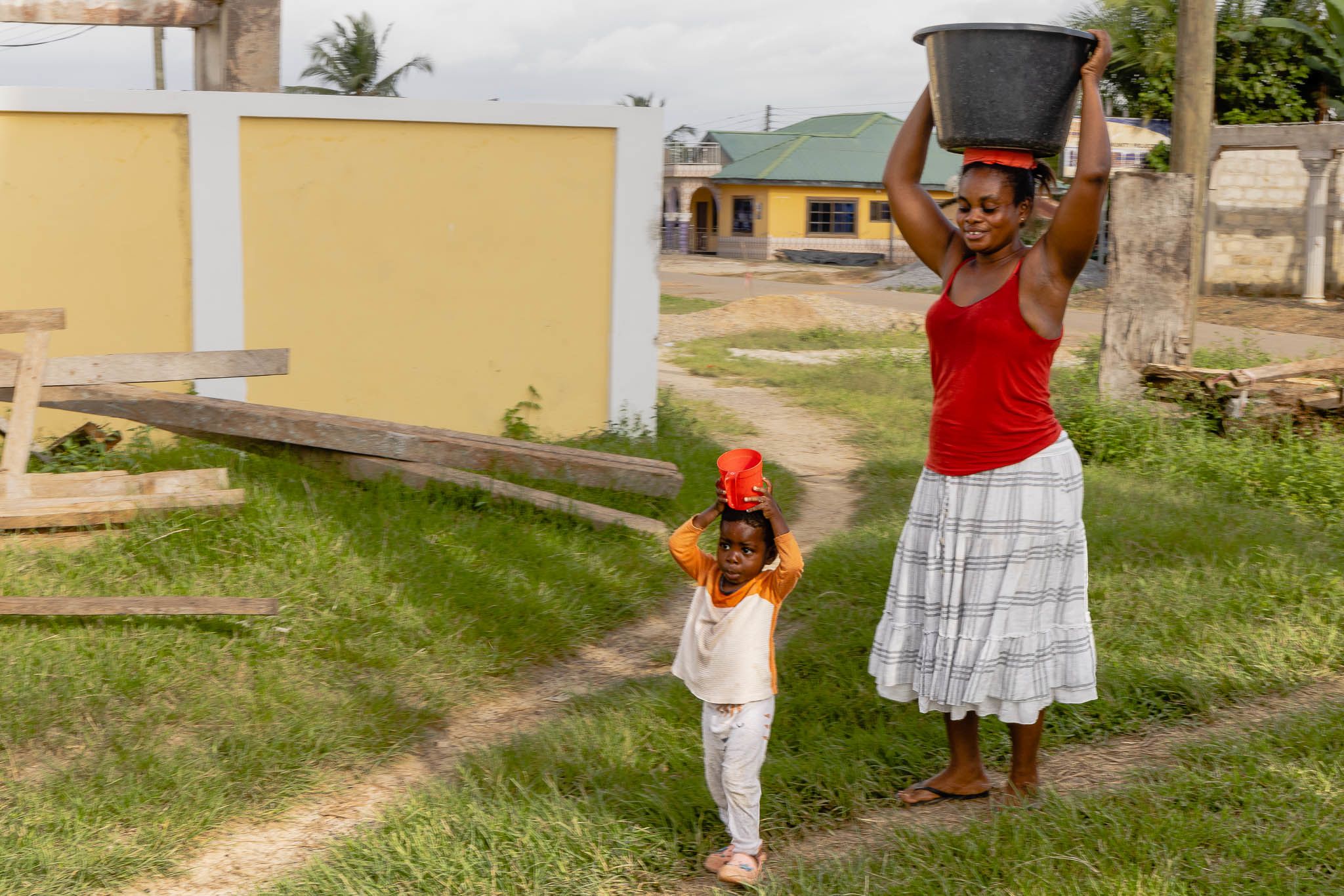

A Change for the Future
Huniso's new water system is also an investment in the health and well-being of the next generation. A toddler joining his mother on their afternoon walk to get water will not need to worry about what will happen if the water system needs repairs, because the project has set up a sustainable economic system to ensure it will always be taken care of.
The partnership between Gold Fields Ghana Foundation and Global Communities began in 2020 to provide and sustain the WASH needs of mining communities of the Tarkwa Goldfields.
The project started in Huniso and expanded to Subri. A small-town water system is currently being installed in Wangarakrom and will be installed in Samahu in the coming years.
Filming courtesy of 5Fifty Productions, Global Communities
Photography courtesy of Kallista Zormelo, Global Communities

At a time when disasters and disruptions are becoming more common and catastrophic, Global Communities, together with our local partners, equips communities with the training, tools and resources they need to recover from crises and build long-term resilience in the face of constant change.
From prevention and adaptation to positive transformation, we focus on solutions that center local voices and expand opportunities for growth, leadership and advancement.


